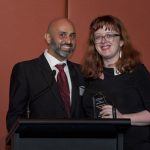Lawyers Who Engage in Fraud

The Legal Aid Commission plays an integral role in the NSW justice system; providing disadvantaged people with legal advice and representation across the state.
Part of the Commission’s role is to assign cases to private law firms, who represent the clients and are then paid by Legal Aid at a reduced rate.
But Legal Aid is notoriously under-resourced – it has been struggling since the Federal Government announced massive funding cuts last year, despite the Productivity Commission recommending an injection of $120 million in funding.
In spite of this, some private lawyers have been billing Legal Aid for work that is never completed in order to make more money.
Liverpool Lawyer Struck Off
Liverpool-based lawyer Sonny Wilson, who has his own firm, was struck off after the Civil and Administrative Tribunal found that he had misappropriated trust funds and falsely billed the Legal Aid Commission for work that was never undertaken.
The allegation included that he charged the Commission for translators and barrister’s fees at least five times over the course of a year. It is alleged that barristers were never briefed to appear in court and were not paid, as Wilson undertook the work himself.
Mr Wilson’s practising certificate was formally suspended by the Council of the Law Society in October 2013 pending the outcome of the Tribunal hearing, and a new office manager was appointed to take over his practice.
The Tribunal found that Mr Wilson had falsely invoiced Legal Aid for $30,000.
Mr Wilson argued that a period of suspension would be adequate, claiming that he had changed his ways and learnt from his past mistakes. But the Tribunal was not satisfied and ordered that he be completely ‘struck off’ the roll of lawyers.
Under the Uniform Legal Profession Act, Mr Wilson will be allowed to re-apply for admission, but he will need to satisfy the Legal Profession Admission Board that he is a ‘fit and proper person to be admitted to the Australian legal profession.’
In assessing whether someone is a fit and proper person, the Board can consider factors such as whether they:
- are of ‘good fame and character’,
- have ever committed a criminal offence, and
- have been the subject of disciplinary action that involved a finding adverse to them.
A Common Occurrence
Sadly, cases of lawyers overcharging clients and the Legal Aid Commission are not uncommon. Even high-flying, well-known lawyers can find the opportunity to make a few extra bucks hard to resist.
In 2013, Stephen Firth – who established Firths Compensation Lawyers in 1993 – found himself referred to the Office of the Legal Services Commissioner after allegedly overcharging a client more than $100,000 for legal advice. The client was initially billed $177,000, but the parties agreed to settle for $75,000.
In another matter involving a different client, Mr Firth is alleged to have charged $40,000 for five hours of work – even though the matter was supposed proceed by way of a ‘fixed fee’ agreement. According to the complainant, he subsequently agreed to pay the firm a higher fee if the case was settled for a larger sum – but the client later found out that the insurer had agreed to settle the claim for the higher amount before the new cost agreement was issued.
And in Queensland, another greedy lawyer found himself struck off the roll after it transpired that he had overcharged a client by almost $500,000.
Ironically, the offending lawyer was forced to declare himself bankrupt following his referral to Queensland’s Lawyers and Conveyancers Disciplinary Tribunal – but this news was not well-received by the former client, who conceded that it was unlikely that he would recover the overcharged fees.
Despite these types of cases receiving attention in the media, there remains an endemic problem with lawyers overcharging. Last year alone, the NSW Law Society investigated hundreds of complaints against lawyers – many from former clients who alleged that they had been grossly overcharged.






